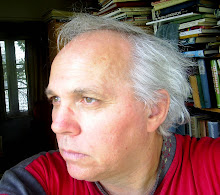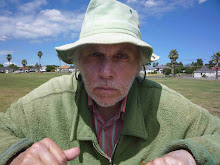Room 780.1
Comment on Room 780
___________________________________________________________________
The Greatest Poet of the 20th Century
_____________________________________________________________
??????????????????????????????????????????????????????????????????????????
{Clearly the above "statement" - (both in regard to their being a greatest poet and that Douglas was that ) - is dubious - but I wanted thus to signal my enthusiasm and intense appreciation of, and the significance of, for this - in some ways - "neglected" poet - }
?????????????????????????????????????????????????????????????????????????
____________________________________________________________
~~~~~~~~~~~~~~~~~~~~~~~~~~~~~~~~~~~~~~~~~~~~~~~~~~~~~~~~~~~
~~~~~~~~~~~~~~~~~~~~~~~~~~~~~~~~~~~~~~~~~~~~~~~~~~~~~~~~~~~
~~~~~~~~~~~~~~~~~~~~~~~~~~~~~~~~~~~~~~~~~~~~~~~~~~~~~~~~~~~
..................................................................................................................................................................
Room 780 – part of the infinite set of rooms that make up the houses of
EYELIGHT
was “framed” by a reference to Keith Douglas, who, had he lived longer, may have come to be considered the greatest poet of the 20th Century.
In my perspective he was, is.
(I owe my “acquaintance” with him to Scott Hamilton of the (political, poetic, cricket, music, Kiwiana, geography, Maoritanga, and life Blog: ‘Reading the Maps’).
The Steffi.Vergissmeinnicht “comment” is from the poem given below. While he was, in a kind of detached way, “anti-war” – Douglas also loved war – at least battle – and was fascinated by the military.
His poems a have a strange, near surreal clarity, lucidity, and (fro me) agonising beauty: derived from Douglas’s unremitting realistic observation and his powerful imagination, and deep sense of language, that contrast his work with the “horrors” they are depicting.
He knew of course of the great First WW poets such as Rosenberg and Wilfred Owen, but his “look” at war was quite different. He saw all sides of war: he has the vision of a great poetic genius, and his vision may seem cold and strange, and he did not lack deep feelings about the awful nature of war, but he felt for all involved in war, but he knew also the way men and women can be in war or situations of war and yet continue in this state with a certain abstract indifference...or seeming (or seeing?) indifference. If we didn’t indeed have this de-subjectification or “indifference and abstraction”, we could not only not think, we would probably also not be able to operate, in fact with too much sensitivity, too much non-objectivity, we would go mad.
Go mad and become "God's spies" - if for however brief a time
He was complex in this respect.
I have also shown images of Robert Creeley and my son (as well as other images such as one of a dead man killed in Palestine or Iraq or somewhere) – both Creeley and my son had or have an eye missing so their connections to EYELIGHT are thus explicated to some degree, but there is more. I will get back to that (Creeley was in the WW2 combat, but more in the back lines in ambulances etc).
Douglas thus frames this room, but so does the real or imagined Steffi – the soldier’s girl (perhaps the young German’s first love?), in the poem below…
....in addition the ‘forget me not’ is directed or turned toward myself!
It is also applicable to us all... {for indeed we beat strange.........
– the existential angst etc
Here is the poem (which has been much anthologized since Ted Hughes brought strong attention to Douglas) that frames Room 780 – perhaps not Douglas’s best, it has yet, an eerie power…
______________________________________________________________
_______________________________________________________________________
Vergissmeinnicht
by Keith Douglas
Three weeks gone and the combatants gone
returning over the nightmare ground
we found the place again, and found
the soldier sprawling in the sun.
The frowning barrel of his gun
overshadowing. As we came on
that day, he hit my tank with one
like the entry of a demon.
Look. Here in the gunpit spoil
the dishonoured picture of his girl
who has put: Steffi. Vergissmeinnicht.
in a copybook gothic script.
We see him almost with content,
abased, and seeming to have paid
and mocked at by his own equipment
that's hard and good when he's decayed.
But she would weep to see today
how on his skin the swart flies move;
the dust upon the paper eye
and the burst stomach like a cave.
For here the lover and killer are mingled
who had one body and one heart.
And death who had the soldier singled
has done the lover mortal hurt.
~~~~~~~~~~~~~~~~~~~~~~~~~~~~~~~~~~~~~~~~~~~~~~~~~~~~~~~~~~~~~~~~~~~
~~~~~~~~~~~~~~~~~~~~~~~~~~~~~~~~~~~~~~~~~~~~~~~~~~~~~~~~~~~~~~~~~~~
___________________________________________________________________
There is something of the Elizabethan “metaphysical poets’” intensity of image here – and it is also notable the great interest that Creeley had in those writers (such as Donne et al).
~~~~~~~~~~~~~~~~~~~~~~~~~~~~~~~~~~~~~~~~~~~~~~~~~~~~~~~~~~~~~~~~
Here is a brief biographical comment on Douglas:
Keith Douglas was born in Kent, and educated at Oxford University under the tutorship of poet Edward Blunden, before enlisting with the British Army when World War II broke out. He is the most famous English poet of that war, although he began publishing his work at the age of 16. His verse is precise, unsentimental and at times chilling, in its treatment of desire and sexuality as well as in its pervasive obsession with death and the relation of death to writing. Douglas was killed in Normandy, having also written about his involvement in the war in North Africa, his slim but intensely powerful corpus concluded at an early age. His work began to receive the acclaim it deserves only when Ted Hughes, a great admirer, edited and introduced a collection in 1964 (Selected Poems). See also the more recent Complete Poems (ed. Desmond Graham; 1978).
(from the Bloomsbury Dictionary of English Literature, )
_______________________________________________________________________
_____________________________________________________________________
.jpg)


